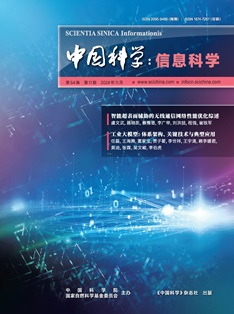BrickOS: specialized kernels for heterogeneous hardware resources
Q2 Engineering
引用次数: 0
Abstract
The emerging field of human-machine-material integration requires new operating system kernels to support the ubiquitous computing, so as to manage and control massive heterogeneous hardware and serve dynamic and changeable application scenarios. This paper proposes a configurable specialized kernel architecture, named BrickOS, which can flexibly select the system components of the kernel according to the usage scenario. Developers can choose to run the system components in user mode to provide better security, or run in a shared-address-space kernel mode to improve performance. In order to ensure the security of system components running in the same address space, BrickOS provides a unified abstraction for the memory protection mechanism of the underlying hardware used for memory isolation in a single address space. The test results show that BrickOS can generate customized kernels that meet the requirements for different scenarios, with low inter-process call (IPC) overhead and good overall performance.BrickOS:针对异构硬件资源的专用内核
新兴的人机物一体化领域需要新的操作系统内核来支持泛在计算,从而管理和控制大规模异构硬件,并服务于动态多变的应用场景。本文提出了一种可定制的专用内核架构,命名为BrickOS,它可以根据使用场景灵活选择内核的系统组件。开发人员可以选择在用户模式下运行系统组件,以提供更好的安全性;也可以选择在共享地址空间内核模式下运行系统组件,以提高性能。为了确保在同一地址空间运行的系统组件的安全性,BrickOS 为底层硬件的内存保护机制提供了一个统一的抽象,用于在单一地址空间进行内存隔离。测试结果表明,BrickOS可以生成满足不同场景要求的定制内核,并且进程间调用(IPC)开销低,整体性能良好。
本文章由计算机程序翻译,如有差异,请以英文原文为准。
求助全文
约1分钟内获得全文
求助全文
来源期刊

中国科学:信息科学
Engineering-Engineering (miscellaneous)
CiteScore
2.50
自引率
0.00%
发文量
1961
期刊介绍:
Scientia Sinica Informationis, founded in 2009, is a journal supervised by the Chinese Academy of Sciences and sponsored by the Chinese Academy of Sciences and the National Natural Science Foundation of China. The journal strives to publish Chinese articles of the highest academic level in the field of information science, and report original results of basic and applied research in computer science and technology, control science and control engineering, communication and information systems, electronic science and technology. It promotes the development of information science and technology, builds a bridge between theory and technology application, and promotes cross-fertilisation with various disciplines and industries. The journal is published monthly on the 20th of each month.
Scientia Sinica Informationis is currently indexed in SCOPUS, China Science Citation Database (CSCD), CITIC Core Journals of Chinese Science and Technology (Source Journals of Chinese Science and Technology Papers Statistics), Chinese Core Journals (Beida Core), China Science and Technology Papers and Citation Database (CSTPC), and so on. Database (CSTPC).
 求助内容:
求助内容: 应助结果提醒方式:
应助结果提醒方式:


